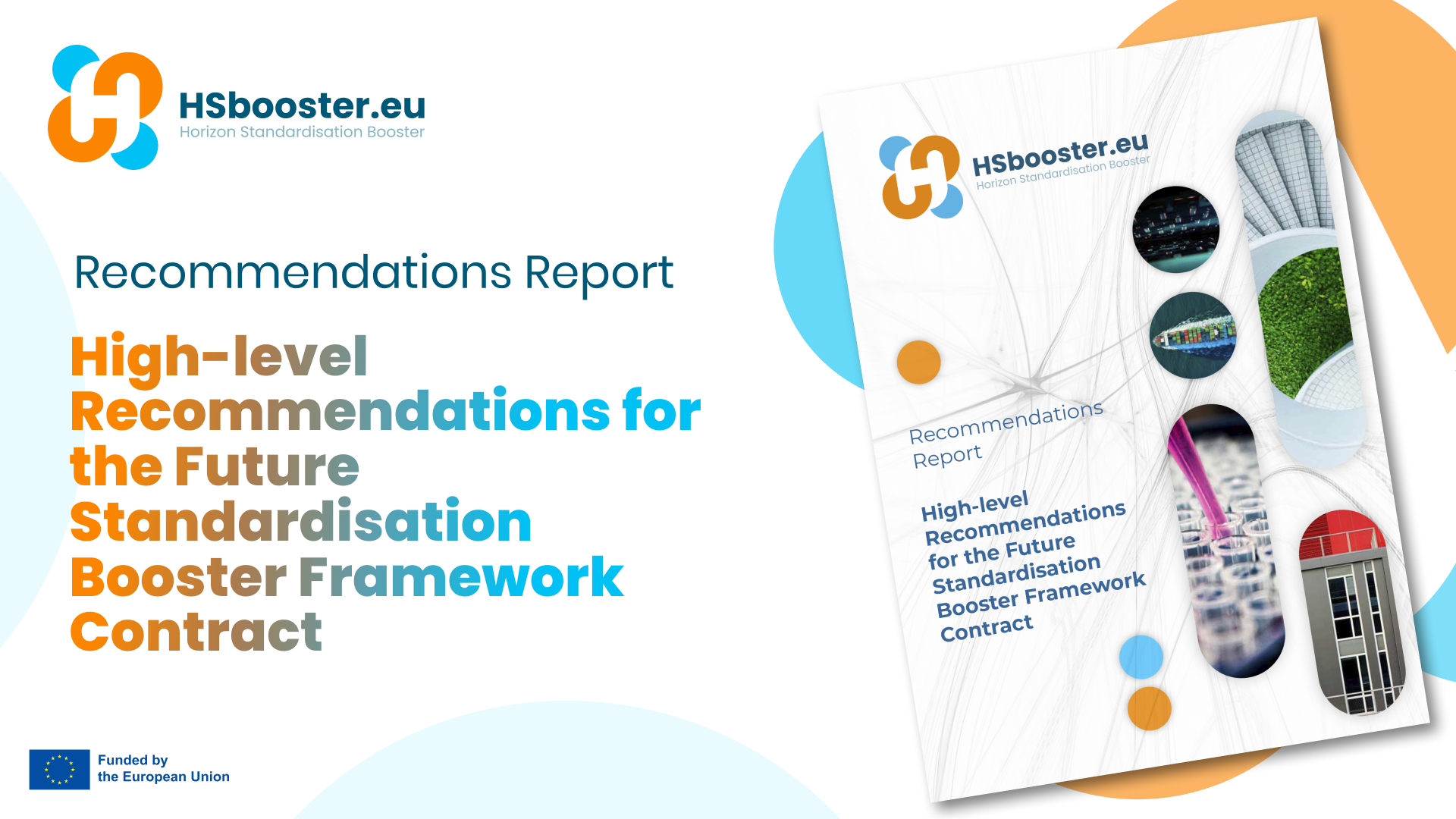HSbooster.eu, a 36-month initiative aimed at piloting a European Standardisation Booster, has released a new report outlining crucial recommendations for the future framework. The HSbooster initiative provides a range of support services to EU-funded projects, enabling them to maximise and valorise their results through contributions to the development and revision of standards.
The newly published document serves as a roadmap to enhance the integration between the research and standardisation domains across Europe, drawing from valuable insights and experiences gained during the HSbooster.eu project. To refine these recommendations further, a series of external workshops and reviews were conducted, reflecting the commitment of all stakeholders to continuously engage in this vital process.
Key Insights: Seven Recommendations for Sustained Progress
The report presents seven key recommendations, each accompanied by comprehensive considerations and practical suggestions to ensure momentum in future booster initiatives.
These recommendations are designed to sustain progress and facilitate ongoing collaboration among stakeholders.
Below is a summary of the recommendations:
- Framework and Resources: Establish a clear scope and framework for the future booster while ensuring adequate resources to maintain high service levels.
- Collaboration Among Stakeholders: Foster long-term collaboration between key stakeholders, including the European Commission, standardisation communities, and beneficiaries, to strengthen the link between research and innovation (R&I) and standardisation.
- Premium Service Continuation: Maintain the successful premium service concept from HSbooster.eu, which has proven effective in delivering high-quality support and achieving high satisfaction levels.
- Development of Tools and Platform: Further develop and promote the existing HSbooster.eu platform and tools to enhance their role in connecting R&I with standardisation.
- Training Academy Enhancement: Expand the use of the Training Academy by continuously adding new elements based on user feedback, and enhance its visibility to increase participation.
- Integration with Framework Programmes: Systematically incorporate standardisation into framework programmes and align relevant calls with Annual Union Work Programme (AUWP) topics to strengthen European priorities.
- Upscaling Initiatives: Focus on upscaling and full implementation at the member state level to ensure significant, long-term impact, while exploring concepts for providing one-to-many services through collaboration with multipliers.
These recommendations aim to provide a structured approach that is both actionable and informative, offering a clear roadmap for future initiatives. The complete details can be found in the deliverable D5.2 “Recommendations Report - Framing the Future HSbooster.eu Framework.”


